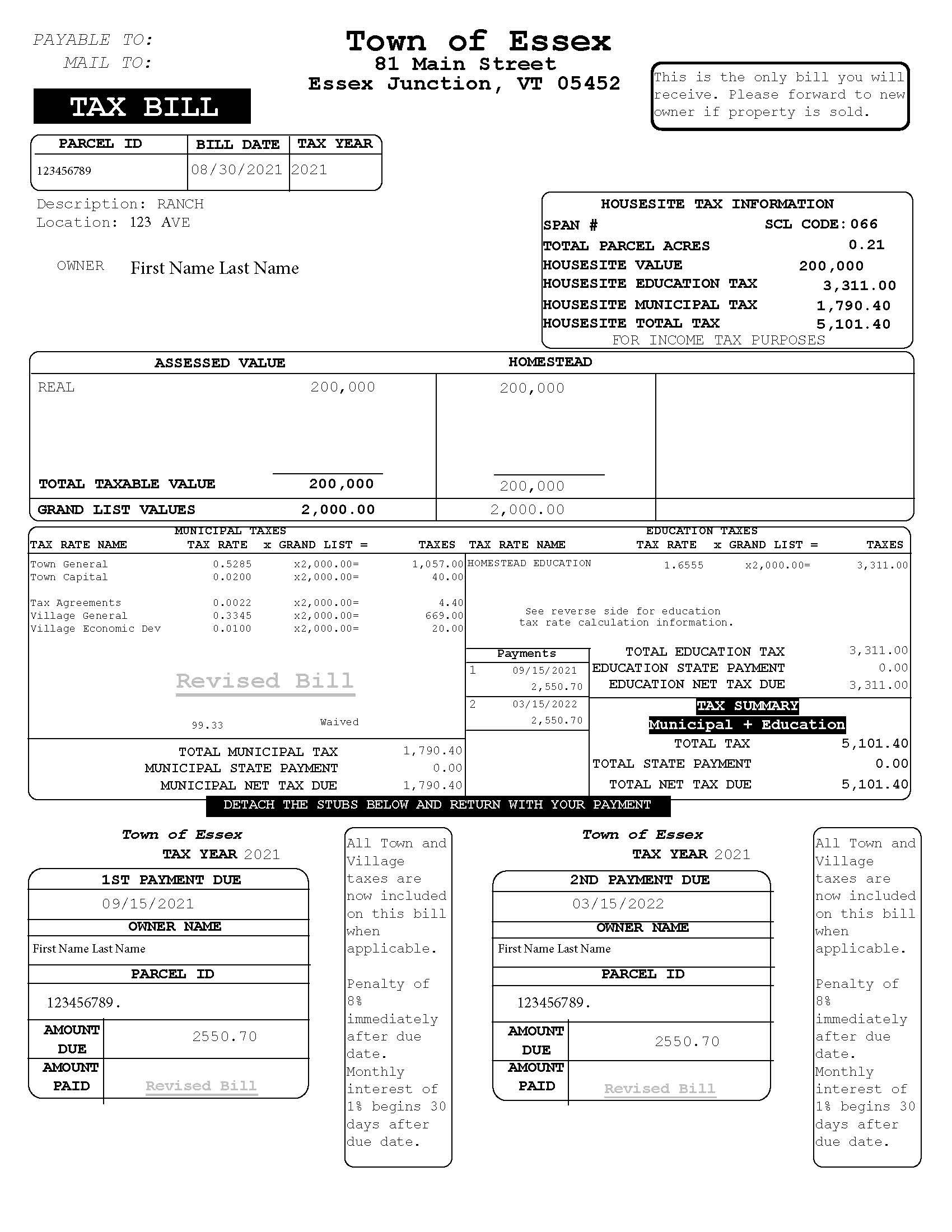TAXES
Vermont Land Gains Tax:
The purpose of the Vermont Land Gains Tax is to discourage short-term land speculation. The tax is assessed on properties that have been subdivided and held less than six years. The tax applies only to the value of land and does not include the value of improvements. The tax rate is quite high when land is held for a short period and sold with a large gain. There are several possible exemptions to the tax, which you should discuss with your attorney. When the tax is due, the buyer is required to withhold and remit to the state 10% of the seller's proceeds unless the seller obtains a Tax Commissioner's Certificate in advance of closing showing a reduced or eliminated withholding requirement.
Nonresident Withholding:
If the seller is not a resident of Vermont, a withholding tax on the proceeds from the sale of the property is imposed. The withholding is applied to potential state capital gains tax, which might become due as a result of the sale. The withholding rate is a maximum of two and a half percent (2.5%) of the sale price. The withholding amount may be reduced or eliminated if the seller applies to the Tax Department for an early determination of the state capital gains tax due. Often there are exemptions available for the sale of a primary residence, which exempts the sale from the withholding tax.
Federal Capital Gains Tax:
If you're selling a home, you may be subject to federal capital gains tax on any profit made from the sale. However, many homeowners qualify for an exclusion of up to $250,000 of gain ($500,000 for married couples filing jointly) if the home was their primary residence for at least two of the last five years before the sale. It's important to understand how this exclusion works and whether your specific situation qualifies. Factors such as recent use of the exclusion, time spent living in the home, and the amount of gain can all impact your tax liability. There are other capital gains tax exclusions you may qualify for. At Peet Law Group, we can help you navigate these rules and work with your tax advisor to minimize your tax burden when selling a home in Vermont.
Foreign Investment in Real Property Tax Act (FIRPTA):
The Foreign Investment in Real Property Tax Act (FIRPTA) imposes a withholding tax on foreign persons selling U.S. real property interests. FIRPTA's primary purpose is to ensure the collection of taxes on gains realized by foreign sellers from the sale of U.S. real estate. Under FIRPTA, the buyer of a U.S. real property interest from a foreign seller is generally required to withhold 15% of the amount realized on the transaction. This withholding serves as a deposit or prepayment of the taxes that the foreign seller may owe to the U.S. government. The actual tax liability of the seller may be more or less than the amount withheld, and the seller can file a U.S. tax return to settle the difference. FIRPTA applies to a broad range of real property transactions, including sales of residential, commercial, and other types of properties. Compliance with FIRPTA is crucial for both buyers and sellers to avoid penalties and interest charges.

